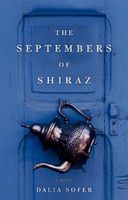 When it comes to books, the definition of spirituality is a loose one. In compiling lists of the best of any given year, we can lean on familiar books about God, or the spiritual life, or we can cast our glance a bit further, and look for books that render the spirit tangible in unexpected fashion, or further our understanding of the place of religion in American life. In the spirit of bold exploration, then, here is one list of noteworthy books from the past year about religion and the spiritual:
When it comes to books, the definition of spirituality is a loose one. In compiling lists of the best of any given year, we can lean on familiar books about God, or the spiritual life, or we can cast our glance a bit further, and look for books that render the spirit tangible in unexpected fashion, or further our understanding of the place of religion in American life. In the spirit of bold exploration, then, here is one list of noteworthy books from the past year about religion and the spiritual:
1. The Septembers of Shiraz, by Dalia Sofer. Sofer’s debut novel, about an Iranian Jewish family caught in the pincer grip of their country’s 1979 revolution, indelibly captures the horror of everyday people caught up in History with a capital H. The Amin family finds themselves facing the unalloyed horror of the Iranian Revolution, and its concomitant outpouring of religiously fueled anger toward its Jews. Sofer’s novel is too delicate, too closely observed, to be concerned solely with politics; instead, it captures the fleeting, quicksilver shifts of mood of individuals– an imprisoned father, an absentee son– faced with a society gone off its moorings. The delicate ways in which each character moves toward grace, in however fleeting and halting a fashion, is the stuff of poetry.
2) Foreskin’s Lament, by Shalom Auslander. A book not for the faint of heart, or those unwilling to see the ugly side of religious belief exposed. Auslander was raised in an ultra-Orthodox community outside New York, and his memoir unflinchingly documents the absurdities and hypocrisies of the clannish world he was once part of. Critics concentrated on his disputes with God, and his fears of the angry deity of the Old Testament striking down his loved ones, but the most affecting, and most disturbing, aspect of Foreskin’s Lament is Auslander coolly offering up details from the dark underbelly of Orthodox Jewish education and family life. Auslander is angry, but not too angry to have brought an overflowing box of documentation to his court case: Auslander v. God. Not everyone may agree with Auslander’s conclusions, or his choices, but he makes a compelling argument against organized religion.
3) God’s Harvard, by Hanna Rosin. Rosin, of the Washington Post, spent a year following students at Virginia’s Patrick Henry College–an evangelical-Christian institution dedicated to training a new generation of conservative political operatives. Rosin found that there was a new generation of young Christians, many of them home-schooled, and most deeply dedicated to advancing the cause of conservatism. Rosin’s book explores the links between political conservatism and evangelicalism, finding an increasingly large group of young men and women for whom religious conviction and political conviction are parts of the same whole.
4) The Stillborn God: Religion, Politics, and the Modern West, by Mark Lilla. Historian Lilla returns to the Enlightenment, and its proposed separation of church and state affairs, and drastically complicates the picture. Looking at the work of thinkers like Hobbes and Rousseau, Lilla sees Christian theology as more flexible, and richer, than previously given credit for by earlier political philosophers. Christianity did not lead to a deeper understanding of the world, in Lilla’s provocative argument; instead, it gave way to a “stillborn God.” This lifeless deity, in fact, opened the door for totalitarian ideologies that ripped the desire for transcendence away from its religious roots.
5) The World Without Us, Alan Weisman- What would happen to our planet if human suddenly became extinct? Weisman poses the question as the basis of his challenging book, but the true question being asked is: What do we do to save our planet from this fate? Weisman’s book may seem like an unlikely choice, but what could be a more burning concern for religious people of all kinds than safeguarding the home bequeathed to us?
—written by Saul Austerlitz


